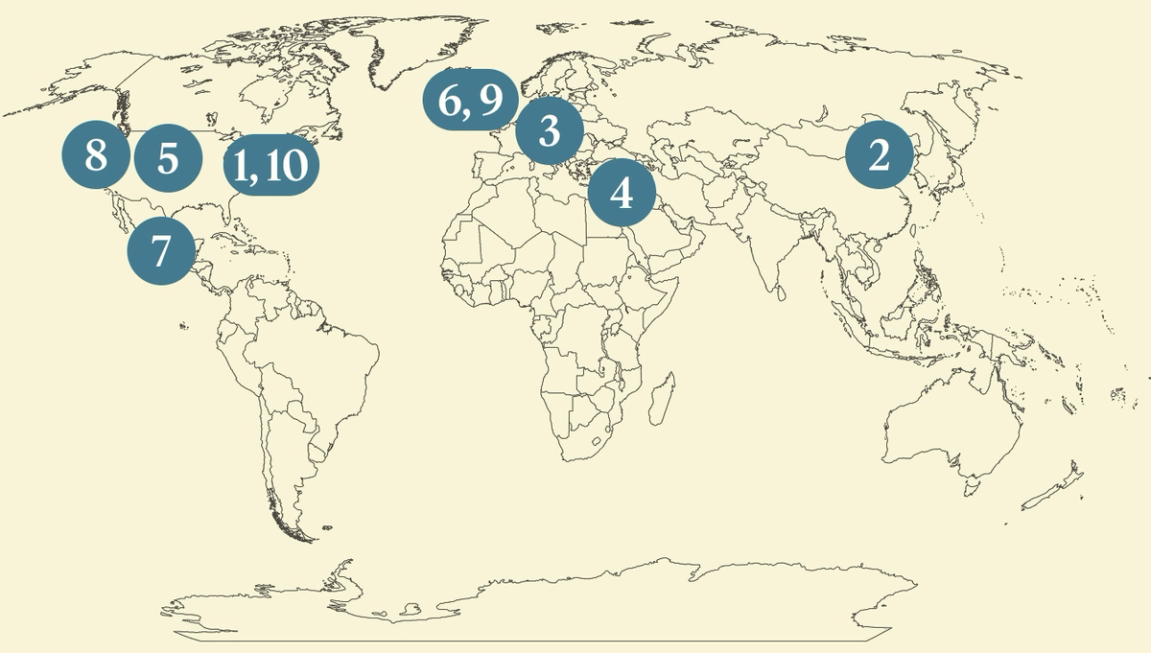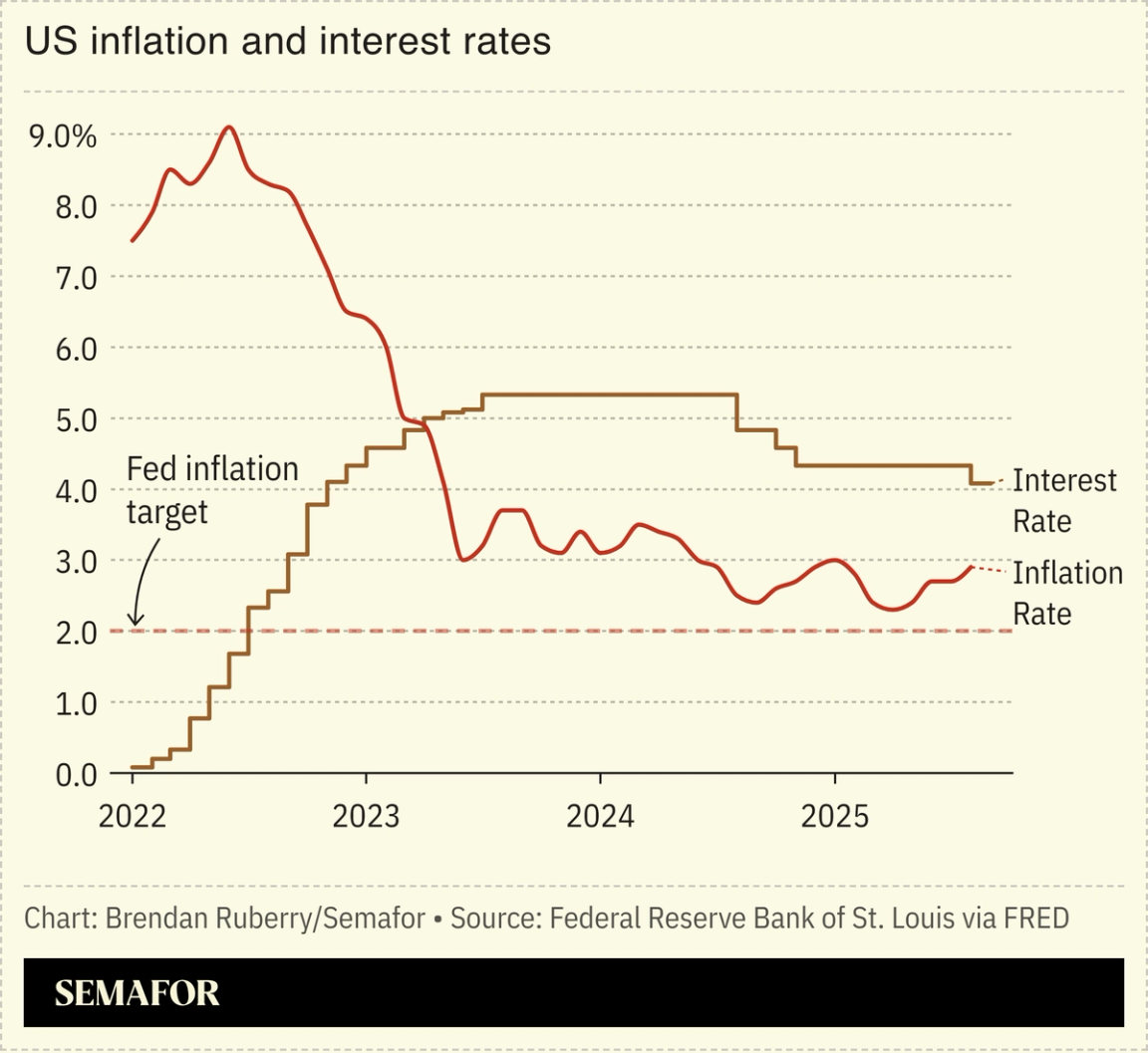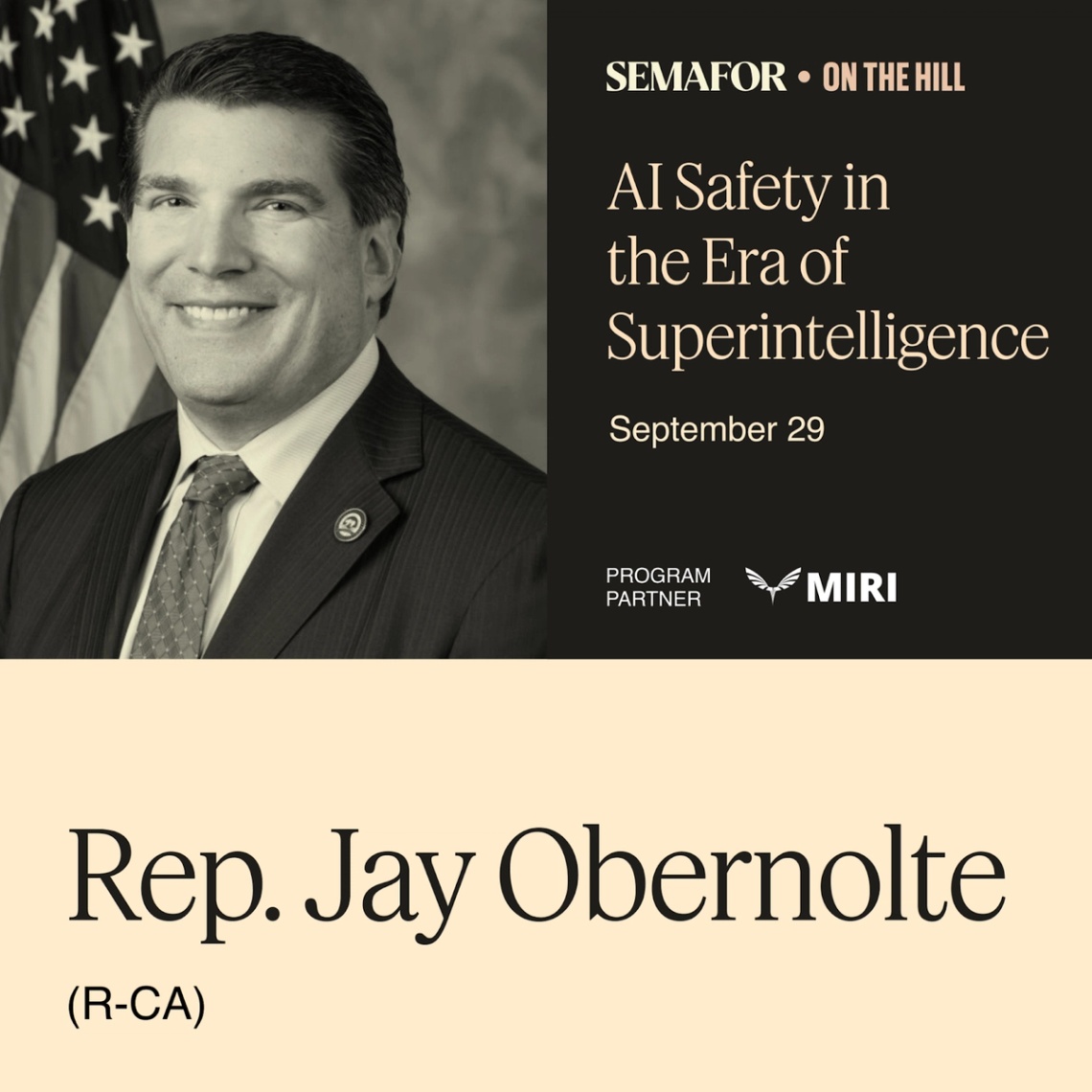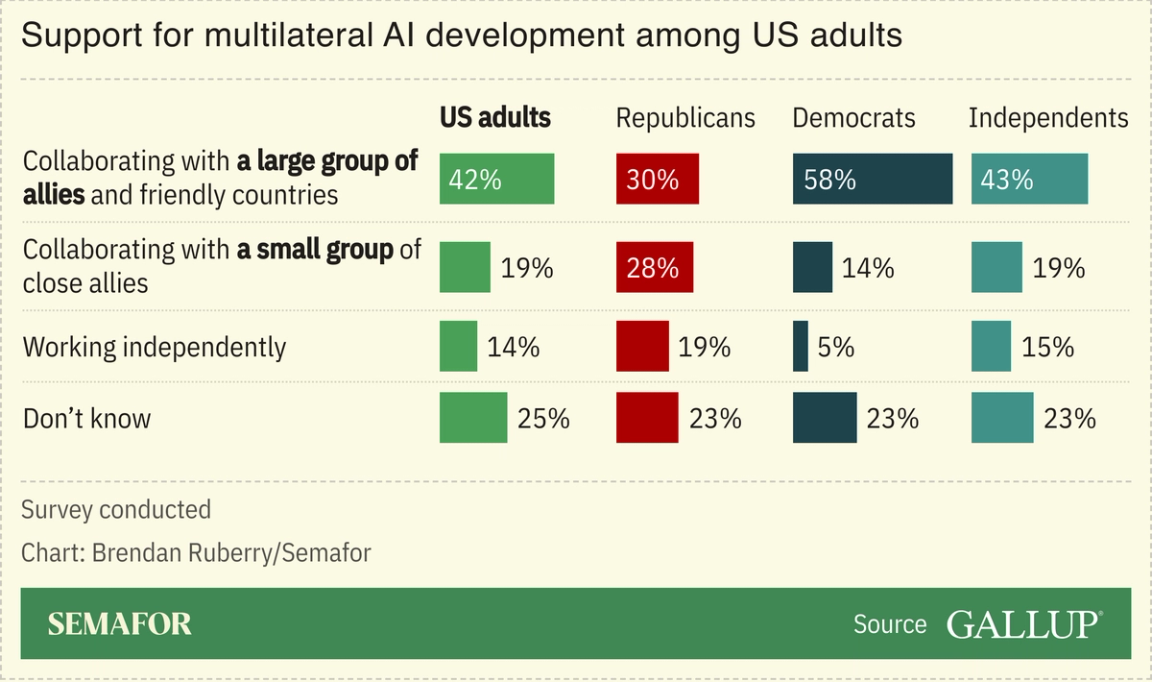| | The Federal Reserve cuts interest rates, the British royals host Donald Trump, and a new doomsday wa͏ ͏ ͏ ͏ ͏ ͏ |
| |   BRUSSELS BRUSSELS |   GAZA CITY GAZA CITY |   SHENZHEN SHENZHEN |
 | Flagship |  |
| |
|
The World Today |  - Fed cuts interest rates
- China’s new Nvidia ban
- EU eyes Israel tariffs
- Global rifts over Gaza
- US crackdown over Kirk posts
- UK royals host Trump
- Mexico’s strategic railway
- Superintelligent AI warning
- Automatics vs. manuals
- Shorter politician names
 An exhibition explores machine as medium. |
|
 The US Federal Reserve cut interest rates Wednesday, its first trim since last December. The quarter-point cut came against the backdrop of unprecedented pressure on the central bank from President Donald Trump, who has pushed for the Fed to lower the cost of borrowing and tried to oust a Fed governor to secure a panel of loyalists. Investors hope Wednesday’s decision will bolster the cooling labor market and spur more growth, but tariffs and layoffs could complicate policymakers’ path. Fed officials penciled in two more reductions, while the sole dissent from a new Trump appointee — who wanted a more aggressive cut — reflected the fraying consensus that Chair Jerome Powell worked hard to keep together. |
|
China blocks Nvidia chip sales |
 Ann Wang/Reuters Ann Wang/ReutersChina banned its largest technology companies from buying Nvidia’s AI chips, Beijing’s latest effort to gain global tech dominance over the US. The order, the Financial Times reported, goes beyond Chinese regulators’ previous guidance for firms not to use another China-specific Nvidia chip. The ban could be a play to push Washington into greenlighting exports of more powerful chips, or to accelerate decoupling from American technology, China analyst Bill Bishop wrote: If Beijing rejects the better Nvidia chips, “that should shut the door on the latest variant of the ‘China fantasy’” — the idea that allowing Nvidia to sell to China keeps the country “addicted” to US tech. Nvidia’s CEO said the two countries have “larger agendas” to work out. |
|
Brussels pushes end of free trade with Israel |
 Wahaj Bani Moufleh/Middle East Images/AFP via Getty Images Wahaj Bani Moufleh/Middle East Images/AFP via Getty ImagesThe European Commission on Wednesday called for suspending a free trade agreement with Israel over the war in Gaza. The move would affect nearly $7 billion worth of commerce — the EU is Israel’s biggest trading partner — and follows internal and external pressure on Brussels to leverage more of its economic heft to influence Israel. But the proposed measures, including sanctioning top Israeli officials, don’t currently have enough support among EU member states to pass, reflecting divisions across the continent as Israel’s expanded offensive in Gaza draws mounting international criticism. Nations like Spain and Ireland want tougher action against Israel, while Germany and Italy have consistently opposed it. Israel dismissed the Commission’s proposal as “morally and politically distorted.” |
|
Global rifts over Israel deepen |
 Lisa Lake/Getty Images for MoveOn Lisa Lake/Getty Images for MoveOnBen & Jerry’s Jerry Greenfield quit the US ice cream giant he co-founded Wednesday, accusing parent company Unilever of silencing criticism of Israel’s war in Gaza. Greenfield’s announcement reflects the increasingly contentious global cultural rifts plaguing the private and public sectors over the nearly two-year conflict. A Belgian music festival recently canceled a concert featuring an Israeli conductor, Spain and Ireland pledged to boycott the Eurovision Song Contest if Israel participates, and thousands of Hollywood actors signed a petition to boycott the Israeli film industry. Pro-Israel figures have condemned the moves, but within Israel, too, divisions are appearing: The government cut funding for the “Israeli Oscars” Wednesday, after a film about a Palestinian boy won awards. |
|
Employers less tolerant of speech |
 Emily Elconin/Reuters Emily Elconin/ReutersA widespread crackdown on public- and private-sector employees for comments about the assassination of conservative activist Charlie Kirk points to a shift in posture over speech in the US, analysts said. Dozens of workers at media companies, airlines, schools, sports teams, and government agencies have been fired in the last week, following a Republican-led campaign against those perceived as celebrating Kirk’s death or criticizing his beliefs. The terminations may be legal, experts told Axios, but “they demonstrate fast-changing norms around free speech that many find troubling.” They also show that companies are increasingly eager to distance themselves from “political commentary that risks blowing back on their reputations with consumers — or the Trump administration,” The Wall Street Journal wrote. |
|
Royals could push Trump on Ukraine |
|
Mexican rail offers canal alternative |
 Gerardo Vieyra/NurPhoto via Getty Images Gerardo Vieyra/NurPhoto via Getty ImagesA new rail corridor reaching from the Pacific Ocean to the Gulf of Mexico has emerged as a competitive, albeit more expensive, alternative to the Panama Canal. The trains allow freight from Shanghai to reach Atlanta in 26.5 days on average — nearly a week faster — though the railway is four times the canal’s length; it offers flexibility when low water levels in the canal cause weekslong delays, as in 2023 and 2024, Nikkei reported. In addition to boosting its logistics profile, Mexico’s proximity to the US gives it a leg up on other trading partners in negotiations with a mercurial Washington, a Bloomberg columnist wrote: “As real estate moguls like to say, it’s all about location, location, location.” |
|
 AI is set to transform the world, but who will control its direction? While the US debates AI regulation, the EU and China are already implementing frameworks that could shape the global AI landscape for decades. With tech giants racing toward artificial superintelligence, a question dominates: What safeguards will keep humanity in control? Join Semafor Monday, September 29 in Washington, DC as Semafor editors sit down with Rep. Jay Obernolte (R-Calif.) to discuss the most critical policy challenge of our time. |
|
Debate over AI doomers’ new book |
 Countries should ban frontier AI research under a global treaty, a new book argues. In If Anyone Builds It, Everyone Dies, well-known AI “doomers” Nate Soares and Eliezer Yudkowsky wrote that a superintelligent machine would almost certainly be capable of destroying humanity and its goals would probably be incompatible with human life. While The London Times noted that several top AI researchers agree with them, some people, including Semafor Tech Editor Reed Albergotti, argued that the dire conclusion leaves no room for nuance. Author Stephen Marche likened reading the book to hanging out with “the most annoying students you met in college while they try mushrooms for the first time.” Yudkowsky acknowledged that the alarmism could turn people off. |
|
Growing number of automatics in UK |
|
|